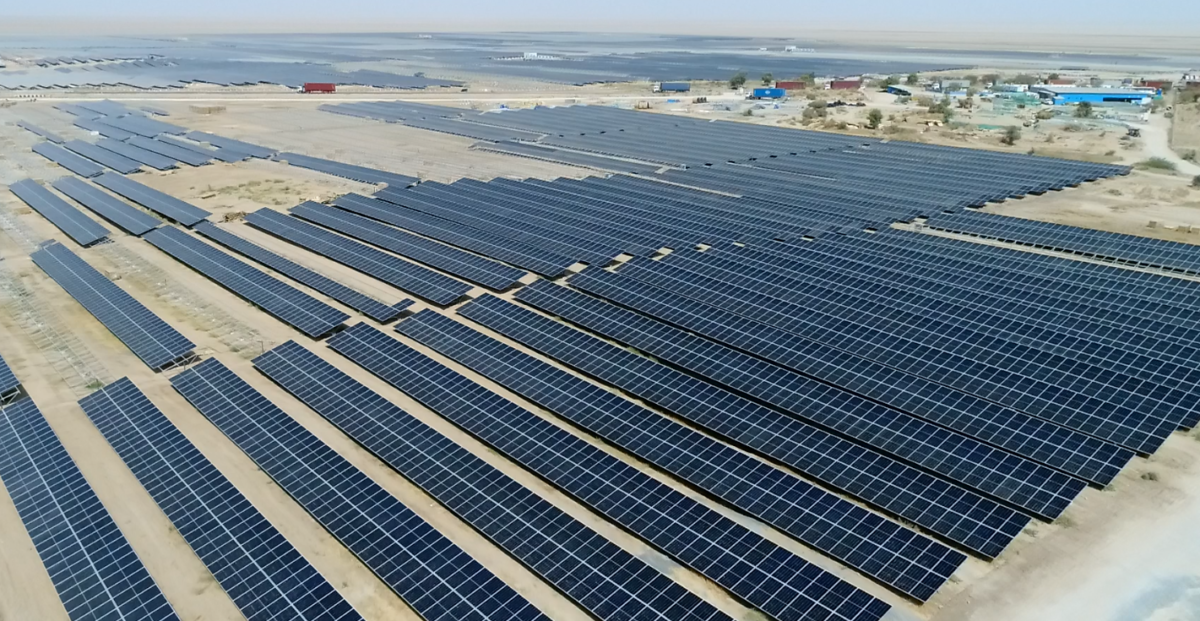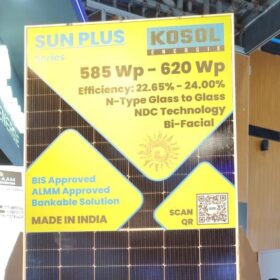While Rajasthan and Gujarat have been at the forefront of renewable energy deployment in the country, more corrective actions in their policies can accelerate the momentum and ensure these states keep playing a central role in India’s energy transition, a new briefing note by the Institute for Energy Economics and Financial Analysis (IEEFA) states.
Notably, among all states and union territories in India, Rajasthan has the highest installed renewable energy capacity of 29,981 MW as of Sept. 30, 2024. Gujarat ranks second with an installed renewable energy capacity of 29,525 MW.
The IEEFA note recommends steps like implementing a green tariff, integrating green budgeting practices, setting up dedicated infrastructure funds, promoting distributed renewable energy, modernising the grid and developing storage solutions to ensure both states continue to lead India’s energy transition.
“India’s energy transition requires states to make a concerted effort to strengthen renewable energy initiatives. While states that are slower in their transition to clean energy need to ramp up efforts, even leaders like Rajasthan and Gujarat must keep taking stock and corrective measures to ensure they do not lose momentum,” says the note’s co-author Vibhuti Garg, Director – South Asia, IEEFA.
“By adopting the right strategies, states like Rajasthan and Gujarat can effectively navigate the transition to a sustainable energy future, achieving their renewable energy goals while fostering economic growth and environmental sustainability,” she adds.
While Rajasthan currently does not have an incremental green tariff, Gujarat has one of the highest. Both states need to course correct, the note finds.
“By enabling consumers to procure renewable power at a premium, Rajasthan can drive demand for renewable energy, encouraging further investments in renewable energy infrastructure without burdening consumers with high upfront costs,” says the note’s co-author Tanya Rana, Energy Analyst, IEEFA.
“Gujarat should focus on refining its regulatory framework to ensure this pricing does not deter potential consumers,” she adds.
The note recommends that both states integrate green budgeting into their fiscal planning. Green budgeting will allow Rajasthan and Gujarat to prioritise investments in renewable energy and green technologies,” says Rana.
The report recommends that Rajasthan and Gujarat prioritise the expansion of distributed renewable energy (DRE), particularly through distributed solar rooftop installations, to enhance their transition to a renewable energy economy. As of Sept. 30, 2024, Rajasthan and Gujarat only had about 7% (2,089 MW) and 15%, respectively, of their total renewable energy capacity (including large hydro) allocated to distributed solar, indicating substantial untapped potential.
“Promoting DRE can reduce pollution by decreasing reliance on centralised power plants, helping both states meet their renewable energy targets while creating jobs and stimulating economic growth,” says Rana.
The note also recommends the two states set up dedicated infrastructure funds designed to finance renewable energy projects. “These funds can provide the necessary capital for large-scale investments, enabling the states to implement ambitious renewable energy targets effectively,” says Garg.
A multifaceted approach is essential to accelerate the renewable energy transition in Gujarat and Rajasthan. This involves implementing strategic measures that enhance financial resources, improve market dynamics, and support effective governance. The note’s recommendations aim to provide a framework for achieving ambitious renewable energy targets.
This content is protected by copyright and may not be reused. If you want to cooperate with us and would like to reuse some of our content, please contact: editors@pv-magazine.com.









By submitting this form you agree to pv magazine using your data for the purposes of publishing your comment.
Your personal data will only be disclosed or otherwise transmitted to third parties for the purposes of spam filtering or if this is necessary for technical maintenance of the website. Any other transfer to third parties will not take place unless this is justified on the basis of applicable data protection regulations or if pv magazine is legally obliged to do so.
You may revoke this consent at any time with effect for the future, in which case your personal data will be deleted immediately. Otherwise, your data will be deleted if pv magazine has processed your request or the purpose of data storage is fulfilled.
Further information on data privacy can be found in our Data Protection Policy.